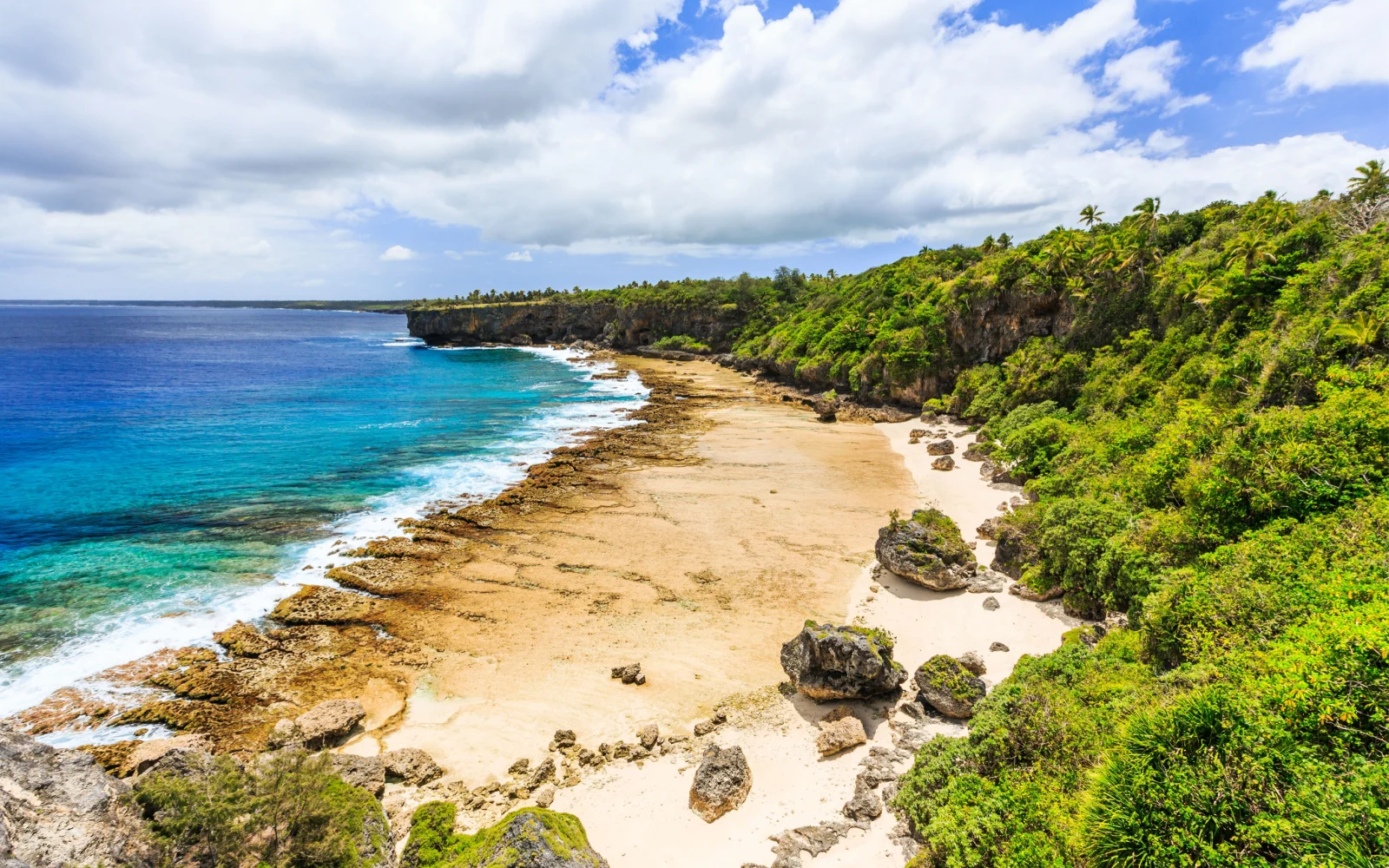Who doesn’t dream of a beautiful escape to a tropical island in the South Pacific? Tonga is the perfect country for that paradise escape. The country has over 170 beautiful islands, each with its own delights to offer visitors.
Tonga has plenty of natural beauty, such as the Mapu’a ‘a Vaea Blowholes, Mount Talau, and of course, countless pristine beaches. Besides that, people love exploring the rich Pacific culture and history in Tonga.
But while it’s rich in history, culture, and stunning natural beauty, is Tonga safe to visit? Here’s our take.
Is Tonga Safe to Visit in 2026?
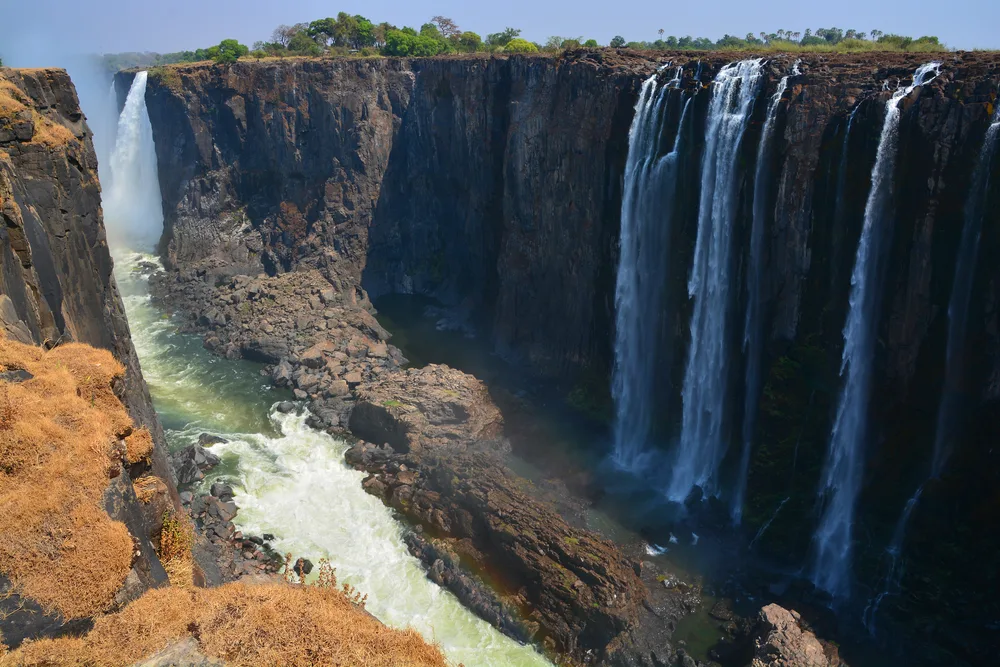
Meunierd/Shutterstock
Yes. Tonga is safe to visit. Crime rates, from petty crime to violent crime, are very low. While natural disasters do happen and the island country may not have as many creature comforts as you are used to, it is nothing to the intrepid traveler.
World governments are pretty unified in their travel advisories when it comes to Tonga. The normally wary United States State Department has the lowest possible alert level for Tonga, advising its citizens just to exercise normal precautions when visiting the island.
Overall, crime rates in Tonga are low. It might even be safer than your hometown! Violent crime is almost non-existent on the island. The biggest crime risk is petty theft. Pickpocketing can happen as well as break-ins to your accommodation.
These are crimes you can expect to encounter anywhere, not just in Tonga, and with some basic precautions, you can avoid any trouble. The biggest risk to your safety in Tonga doesn’t come from anyone on the island but from the nature surrounding the island.
Tonga is prone to natural disasters due to its position in the Pacific Ring of Fire. Most recently, there was an underwater volcanic eruption on January 15, 2023, that disrupted life in Tonga.
Although authorities worked quickly to restore normal life, the Australian government still warns citizens to be aware of some disruptions to normal operations.
Plus, experts warn that there could be future earthquakes, eruptions, or tsunamis due to the increase in seismic activity. Tonga also has tropical storms. The cyclone season happens from November to April. Cyclones are storms that have heavy rain and strong winds.
They often cause flooding, power outages, and other problems. Life in Tonga, especially travel between different islands, can break down during a cyclone.
One thing to keep in mind as you travel around Tonga is that this is a poorer country with a lot of remote areas, so the standard is probably not like what you are used to back home.
For some places, people even advise bringing your own food as the availability is low (remember you are in an island country, after all). Advanced medical care is not always accessible, particularly in remote areas, so keep that in mind.
For some people, it’s all part of the adventure, but for people with chronic health conditions, it might be too dangerous. But, to recap, Tonga is a very safe place.
If anything, you might experience some of the following:
- Pickpocketing
- Hotel break-ins
- Cyclones
- Volcanic eruptions
- Sexual harassment
But these are largely isolated incidents, just like in any other city. Overall, most visitors to Tonga have a great experience.
Crime in Tonga
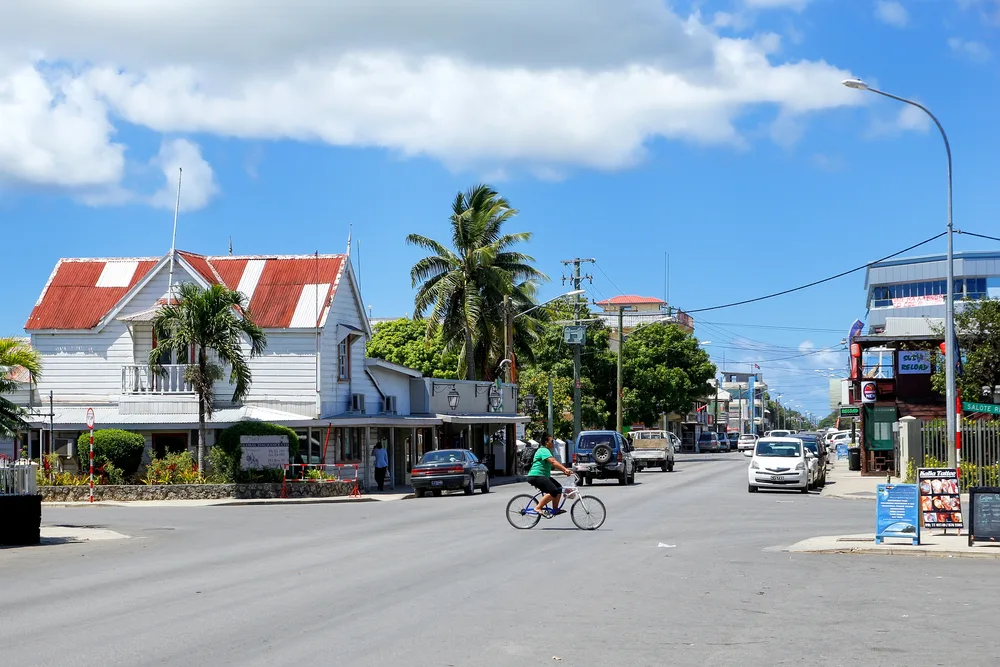
TONGATAPU, TONGA – NOVEMBER 18: Street in Nuku’alofa on November 18, 2013 on Tongatapu island, Tonga. NukuÃ?»alofa is the capital of the Kingdom of Tonga/Don Mammoser/Shutterstock
As mentioned above, most of your worries in Tonga will probably come from the untamable nature or from the infrastructure that might have bugs that you’re not used to. You’re at a very low risk of being the victim of a crime here.
The crime rate in Tonga, especially the violent crime rate, is very low. The violent crime rate in 2019 was 2.87 incidents per 100,000 people, which is much lower than the worldwide average.
In some years, there’s only one incident of violent crime per 100,000 people. Most crimes in Tonga are of the petty variety, such as petty theft and break-ins. However, it’s hard to call them break-ins sometimes.
Usually, thieves just take advantage of people leaving doors and cars unlocked and just waltz right in and take stuff. The atmosphere is so safe on the island that people forget to take basic precautions.
There has been a slight increase in crime on the island. Travelers and authorities warn about an increase in break-ins and robberies. The most violent crime you need to be careful of is sexual assault, which unfortunately mostly affects female travelers.
That is also rising. Keep in mind that this rise in crime is all relative to Tonga’s last crime numbers, so the actual incidents are very low.
To look at how low crime rates are in Tonga, all you need to do is look at the number of prisoners. About 113 people are in jail in Tonga, which means that the number of people who run afoul of the criminal justice system is very low.
Petty Theft
The most common crime travelers have to worry about in Tonga is petty theft. Even in a close-knit community such as Tonga, where everyone knows everyone’s business, the temptation of an easy mark to make a few dollars is too much.
However, these robberies are almost never violent but are really what people call crimes of opportunity. That means thieves see the opportunity of a distracted tourist and seize it, instead of overpowering someone to get their valuables.
Crimes of opportunity may make you feel silly if you are a victim of one, but you shouldn’t worry too much. The great news is that with basic precautions, you can prevent yourself from becoming the victim of a crime in Tonga.
You don’t have to keep a tight grip on your valuables in Tonga, but basic common sense is enough. Don’t leave pockets where you keep your phone and wallet unzipped.
Don’t leave your valuables unattended, for example, on the table in a café or on a public beach while you are swimming. Keep in mind that most foreigners have more money than local Tongans, so if you flash your valuables, you effectively single yourself out as a target.
Most people in Tonga get so relaxed that they forget to lock up their valuables. Vehicle and home break-ins are common, especially targeting foreigners. Thieves are often looking for electronics such as phones, tablets, and laptops, which are expensive in Tonga.
The best way to make sure you are not the victim of a break-in is to limit the opportunity for such a crime to occur. Don’t leave your valuables out in plain sight, both in your hotel room and in your car.
Put them in your glove compartment or trunk in your car and in a drawer in your accommodation. Make sure you shut and lock all doors and windows. That alone will be enough to deter most petty thieves.
Sexual Harassment and Assault
Female travelers to Tonga face an additional danger that male travelers do not have to consider, and that is sexual harassment and assault. Sexual harassment, from unwanted catcalls in the street to inappropriate touching, is sadly common.
Some governments advise their citizens that foreign women have been targeted by criminals in the past. Tonga has a very conservative culture, which is something people are surprised by when they visit and expect a free, loose atmosphere stereotypical of the South Pacific.
However, most Tongans are very religious Christians. This conservatism affects attitudes toward women, which might explain the prevalence of sexual harassment toward women.
Female travelers report extensive verbal sexual harassment, including marriage proposals, on the street. This happens to women traveling alone and even to women traveling with their boyfriends or husbands.
While it obviously isn’t fair to expect women to change their behavior in response to sexual harassment, doing your best to blend in can help you minimize the bad experiences that you will have. Dress codes in Tonga are generally conservative for both men and women.
For example, you’ll rarely see locals of any gender wearing shorts that expose the knee or revealing bathing suits on public beaches. If you are traveling alone, you should be a bit careful about where you go.
Don’t walk or jog alone at dusk, dawn, or during the night. Avoid the beaches at night. Trust your instincts—if a situation feels dangerous, get out of there first and ask questions later.
Areas to Avoid
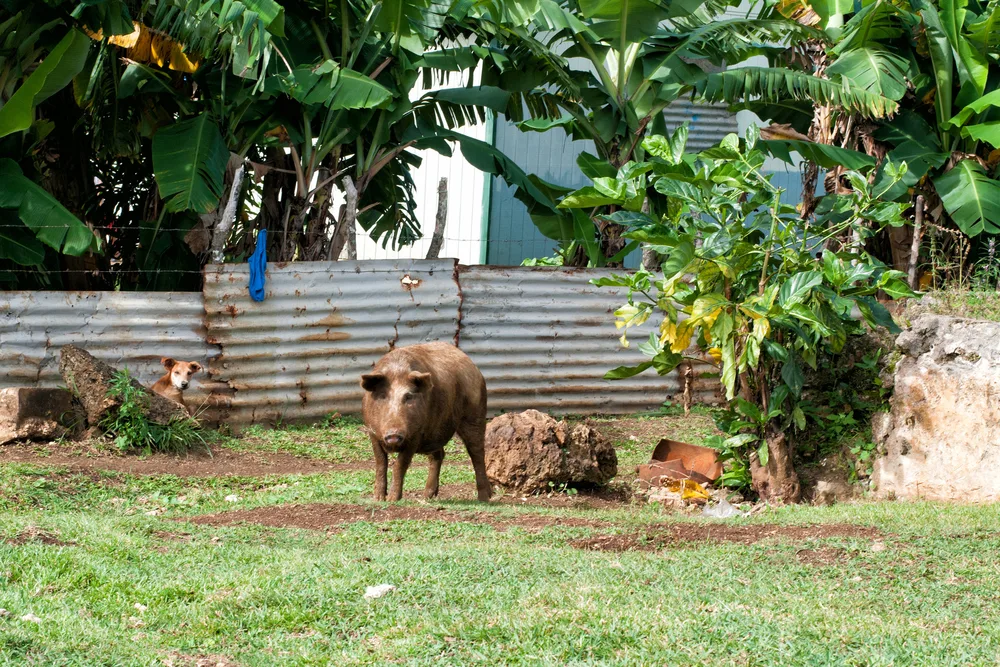
Andrea Izzotti/Shutterstock
There aren’t really any dangerous areas in Tonga because the country overall is so safe. There are a few general precautions to keep in mind as you travel around Tonga.
Avoid isolated beaches at night. As with any beach destination, criminals often target beaches at night, when there are fewer crowds to notice what they’re doing and deter unsavory behavior.
Keep in mind that different places in Tonga are probably less developed than what you are used to. For example, most visitors to the Ha’apai region have to bring their own food in because the supplies are limited outside of the biggest town.
For now, you might want to avoid the outer Tongatapu islands, including the islands of Mango and Fonoi.
These small islands bore the brunt of the damage of the volcanic eruption in January 2023. The main island also got hit but is starting to recover. Rebuilding is a bit slow on the outer islands.
Things to Consider
Here are a few things to keep in mind when traveling to Tonga:
- When people say that Tonga is a Christian country, they mean it. The government mandates Sabbath observance on Sunday, and all businesses are closed—even airports. Make sure you don’t plan any travel or activities for Sunday.
- Drugs are illegal and heavily penalized in Tonga. Alcohol, including the lightly psychoactive drink kava, is legal, but be careful that you don’t indulge too much. Lots of tourists fall victim to kava as it is much stronger than drinks that they are used to.
- Tonga is not the safest destination for LGBT travelers. Homosexuality is illegal, and local attitudes are very conservative.
- Tonga has venomous sea snakes, but their teeth aren’t strong enough to pierce human skin, let alone a bathing suit or wetsuit, and they are very shy and unlikely to attack humans. When swimming, you should worry more about riptides.
Frequently Asked Questions
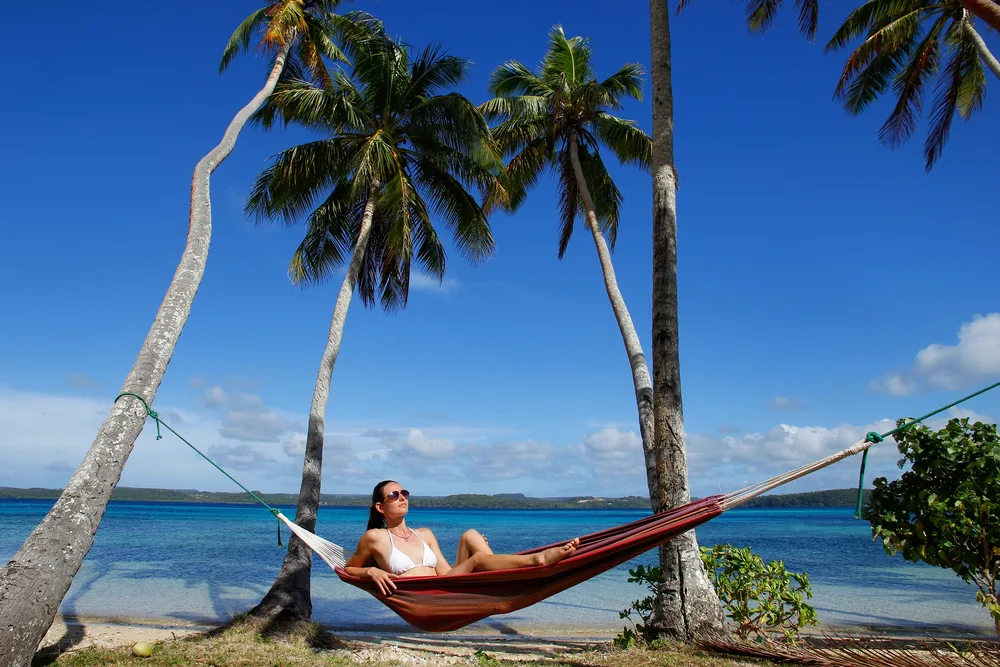
Don Mammoser/Shutterstock
Here are some other things you might want to know about Tonga:
Is is safe to go on vacation to Tonga?
Yes, it is very safe to go on vacation to Tonga. People are very friendly, and crime rates are low, making it even safer than the homes of most tourists.
Is Tonga tourist friendly?
Yes, Tonga is friendly to tourists. The culture is very welcoming towards foreigners. There is basic tourist infrastructure in place, such as hotels, restaurants, and tour operators. However, not all of Tonga is as built up for tourists, and the amenities might be sparser than what you’re used to.
What is the security situation in Tonga?
The security situation in Tonga is very safe. There is very little crime, so there doesn’t even need to be elevated security. Many people feel safe walking around the country with no trouble.
Is alcohol legal in Tonga?
Yes, alcohol is legal in Tonga, and the drinking age is 18. However, the only places that can sell alcohol on Sundays, starting at midnight on Saturday, are licensed hotels. Places that cater to locals don’t sell alcohol on Sundays to avoid breaking Sabbath laws.
Is Tonga cheap to visit?
Accommodation, transportation, and food in Tonga are generally affordable, especially if you are a budget traveler. However, some activities are pricey, and getting to the island itself costs a lot if you don’t live in the Pacific.
So, Is Tonga Safe to Visit in 2026?
Tonga is a safe, off-the-beaten-path tourist destination in the South Pacific. Crime rates are very low throughout the island country, and with some basic precautions, you won’t have any trouble.
Just check the news ahead of time for reports of predicted storms or seismic activity. So, with an overall safe atmosphere and such amazing natural beauty, what are you waiting for — book your trip today!



